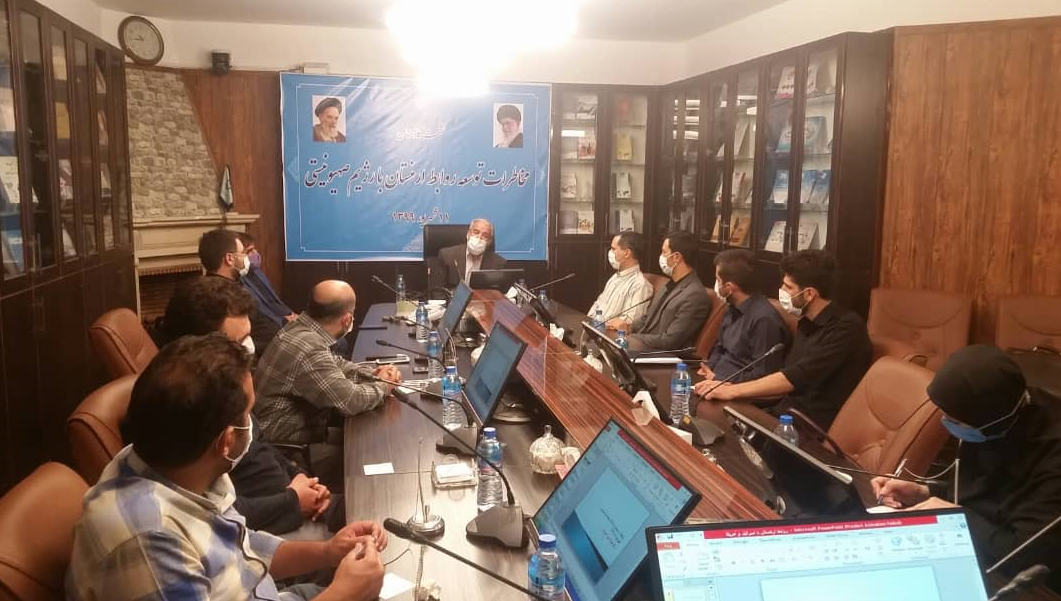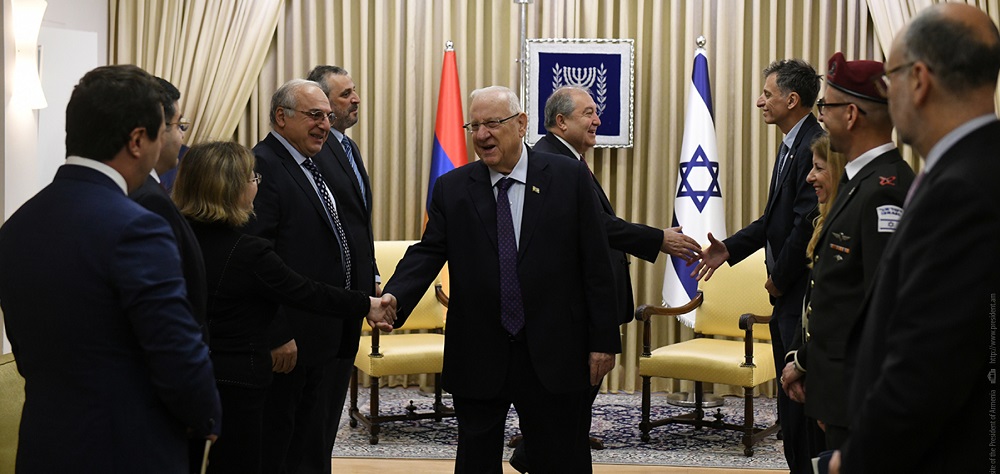Alwaght- The Armenian government’s decision to open an embassy in the Israeli regime’s capital and send its ambassador to Tel Aviv in June this year demonstrates that the bilateral ties have been improving in the recent years and even entered a new stage, conflicting its southern neighbor’s interests and drawing objection from the Islamic Republic of Iran.
Regarding this development, an expert-level meeting was organized in Tehran recently, titled “the risks of Armenian relations promotion with the Israeli regime.” The event brought together a number of political researchers, with Dr Bahram Amir Ahmadian, an Iranian university professor, and Borhann Heshmati a political researcher and Caucasus affairs expert, addressing the audience.
Commenting on some of the goals of Armenia to strengthen ties with the Israeli regime, Ahmadian said that if today Iran shuts down its borders with Armenia, the country will sink into a host of serious problems. He labeled Armenia a country with a small influence on the world stage but “puffed up with conceit.”
“The country printed fake maps of the so-called Greater Armenia in an effort to redefine what it claims to have existed in the first century as the Armenian Empire. The Armenians reiterate the sea to sea (Black Sea-Mediterranean Sea-Caspian Sea) claim of the government in a quest for null expansionist ambitions. They even print these fake claims in their school books and official maps. Their maps include parts of Iran as part of the Greater Armenia. Even in a book of Armenians of Iran contains the same map, perhaps caused by inattention.”

Mr Ahmadian added that the Armenian officials have recently made claims on their country’s role in Silk Road signaling their “dangerous” thoughts in the future of the region. “Their relationship with the Israeli regime falls under these ambitions, though if the Armenians make any operational mistake, the Islamic Republic’s response will be decisive. Even worse, the Israeli regime is not even with Iran in power terms.”
The university professor referred to the high-ranking Armenian officials’ visits to Tel Aviv since 1994, saying that these relations display the long-term vision of the Armenian leaders for political and economic ties with the regime. During all these years, the two sides signed many agreements for customs, consular, and academic cooperation. In late June, the Armenian ambassador to the Israeli regime relocated residence from Cairo to Tel Aviv in demonstration of developing relations.
The Iranian expert also pointed to the occupation of the Karabakh region by Armenia, arguing that it happened just against the international laws. “Armenia has a 3-million population while Azerbaijan’s population is 9 million and so they are incomparable and if Russia allows, Azerbaijan can fast retake its occupied territories.” Ahmadian also referred to the “ineffective” role of the OSCE Minsk Group that was created in 1992 by the Conference on Security and Cooperation in Europe (CSCE, now Organization for Security and Co-operation in Europe (OSCE)) to encourage a peaceful, negotiated resolution to the conflict between Azerbaijan and Armenia over Nagorno-Karabakh. He recommended the Azerbaijani leaders to be skeptical about the vitality of the group.
Another addresser was Mr Heshmati who enumerated the Israeli drivers behind establishing deep relations with Armenia. He added that the Israeli efforts come to get toehold close to the Iranian borders, put economic and political pressures on the Islamic Republic, and help implement the US policies in the South Caucasus region to enjoy Washington’s support in other regional fronts.
“A couple of months ago, Armenian ambassador became resident in Tel Aviv. He even talked to the Israeli media regarding Yerevan’s move, noting that the Iranian remarks cannot hamper the development of ties with the Israeli side. Iran very definitely expressed its protest and some Iranian university students demonstrated outside the Armenian embassy in Tehran that gained massive coverage in Armenian and Azerbaijani media.”
The meeting participants held that pro-Western Armenian leaders have concluded that advancing ties with Tel Aviv can secure their interests and help them solve their problems. Some other Cacasusian states, like Azerbaijan, had already stepped in this path with the same mentality. They even tried to rely on the Israeli regime. But, the participants concluded, promoted relations with Tel Aviv will not solve problems either for Armenia or Azerbaijani, or other Caucasus states.
Neither Azerbaijan has managed to settle the Karabakh dispute to its advantage despite massive arms purchases from the Israeli regime nor has Georgia been able to make any difference to Ossetia and Abkhazia disputes. On the contrary, the Israeli meddling in the Karabakh crisis through selling weapons to Azerbaijan complicated the dispute. Now, Baku can neither put an end to the dispute using military option nor can it create a ground for fruitful dialogue to take back its territory via talks.
“What is clear is that the Armenian mistaken and non-expert decision not only is in stark contrast to the Muslim world and Palestinian interests and will negatively impact the regional stability and security but also is not consistent with long-term Armenian interest and even makes Yerevan accomplice to the Israeli crimes.”



























